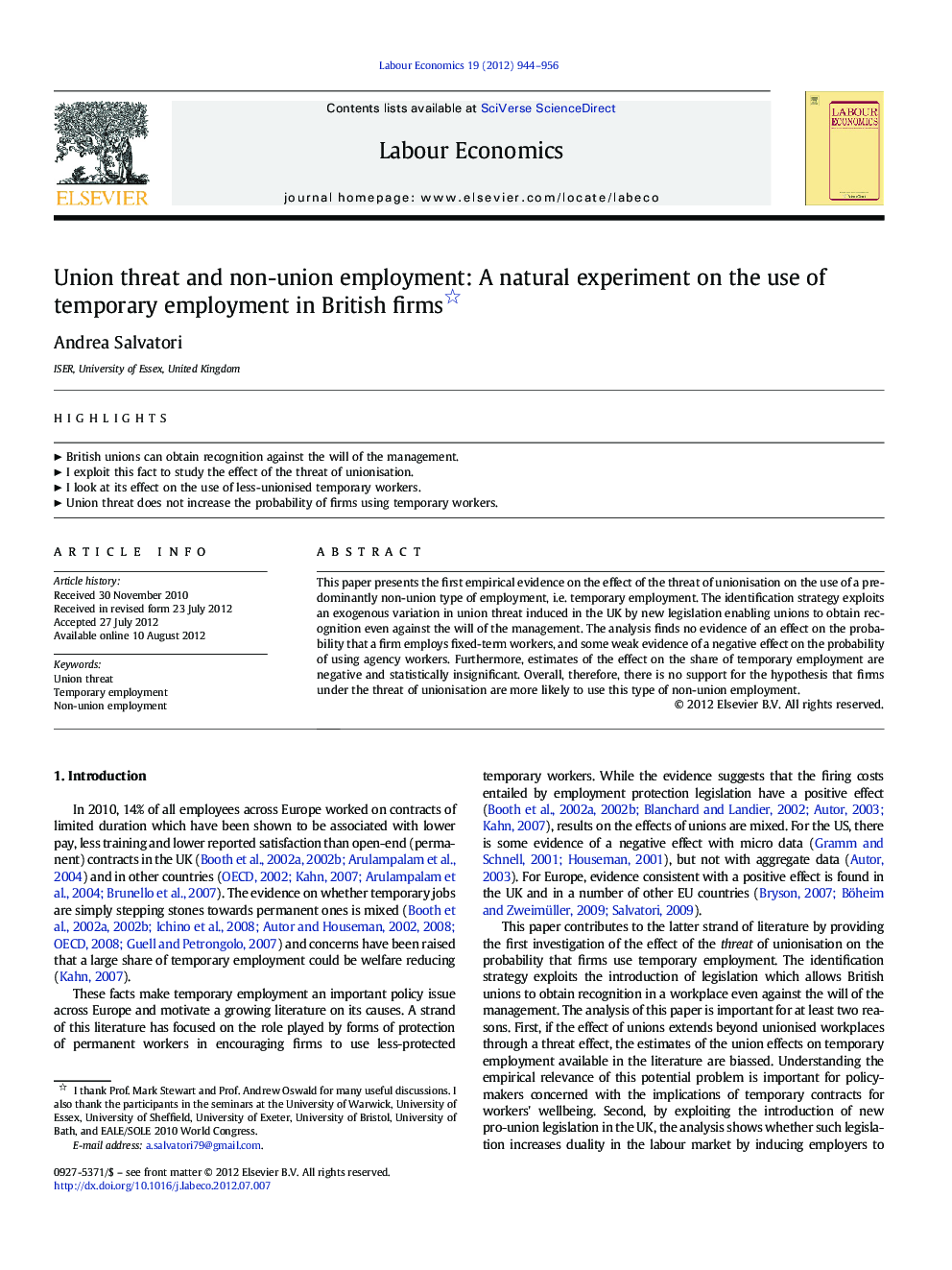| Article ID | Journal | Published Year | Pages | File Type |
|---|---|---|---|---|
| 971530 | Labour Economics | 2012 | 13 Pages |
This paper presents the first empirical evidence on the effect of the threat of unionisation on the use of a predominantly non-union type of employment, i.e. temporary employment. The identification strategy exploits an exogenous variation in union threat induced in the UK by new legislation enabling unions to obtain recognition even against the will of the management. The analysis finds no evidence of an effect on the probability that a firm employs fixed-term workers, and some weak evidence of a negative effect on the probability of using agency workers. Furthermore, estimates of the effect on the share of temporary employment are negative and statistically insignificant. Overall, therefore, there is no support for the hypothesis that firms under the threat of unionisation are more likely to use this type of non-union employment.
► British unions can obtain recognition against the will of the management. ► I exploit this fact to study the effect of the threat of unionisation. ► I look at its effect on the use of less-unionised temporary workers. ► Union threat does not increase the probability of firms using temporary workers.
